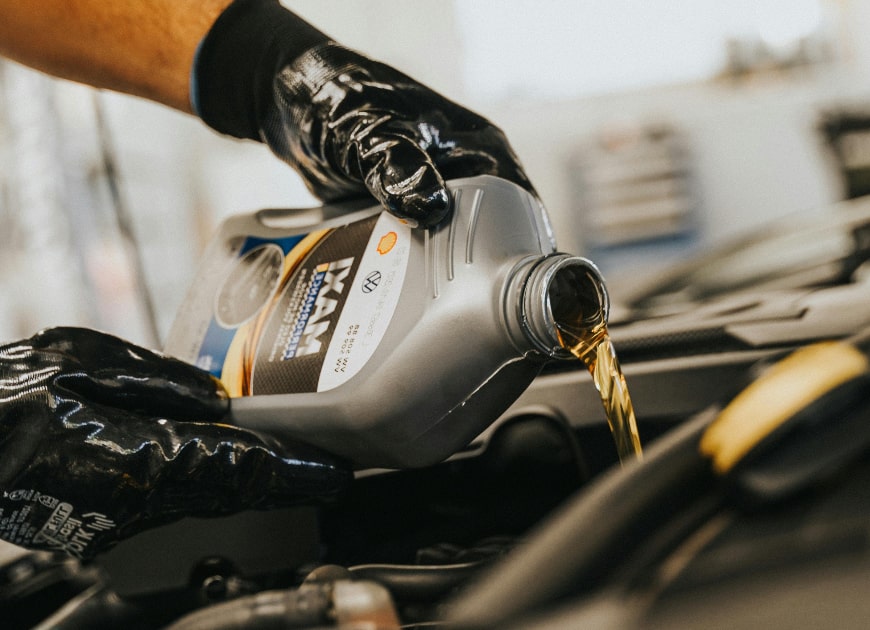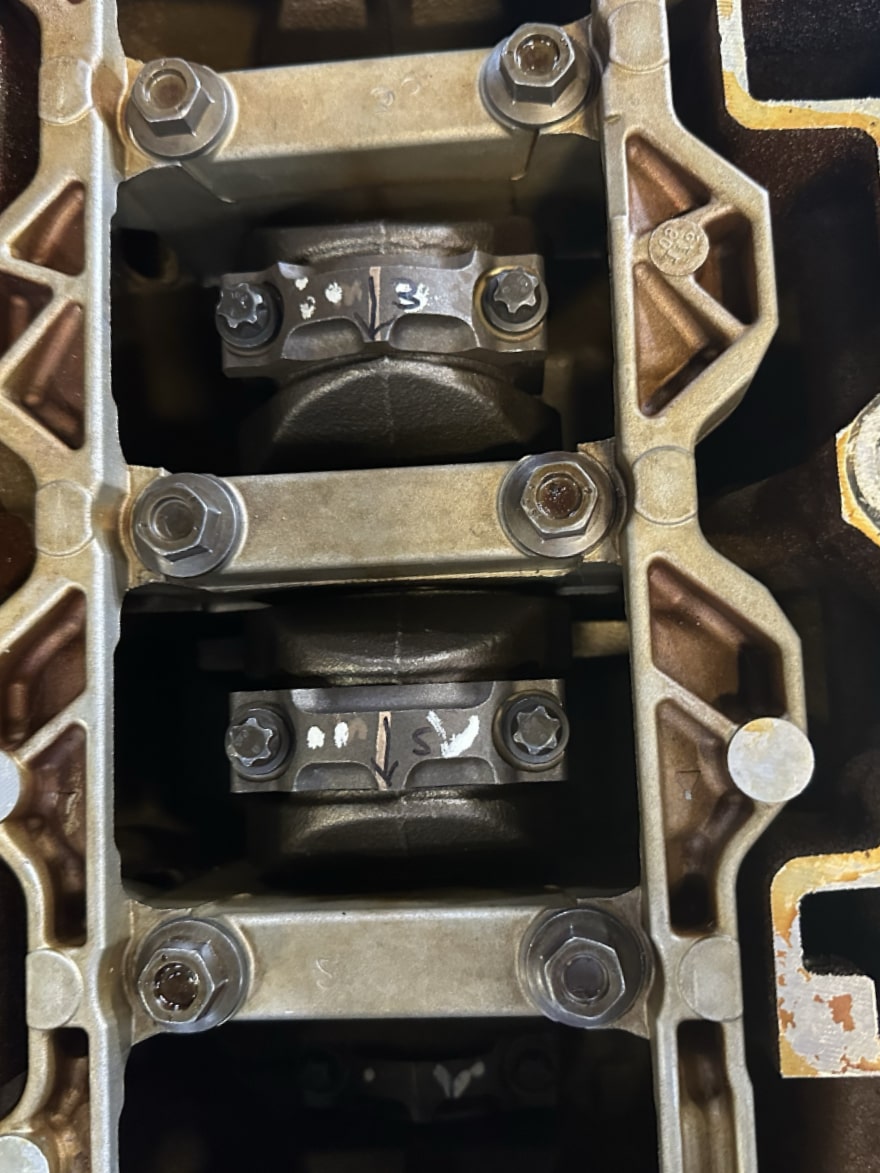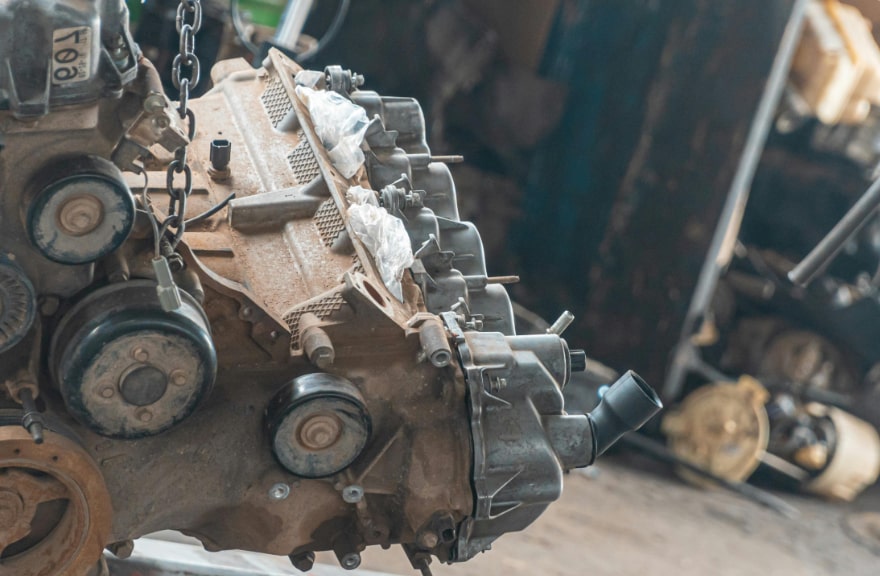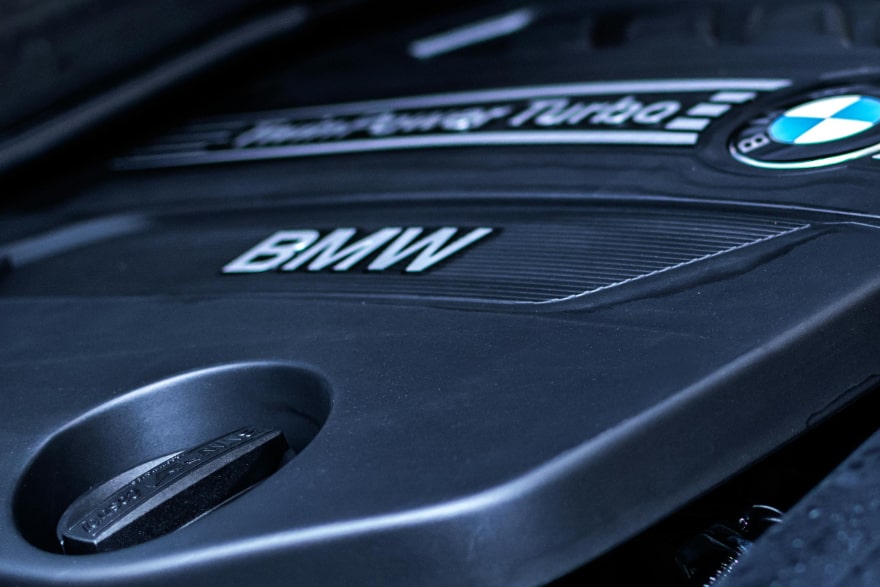 Here is an article on Why Your Oil Needs to be Changed Regularly, but today we’re going to cover what happens when you actually don’t change your motor oil.
Here is an article on Why Your Oil Needs to be Changed Regularly, but today we’re going to cover what happens when you actually don’t change your motor oil.
Many readers have already gone through this and know what happens, but for those that haven’t and just refuse to change their oil, read on to see what happens.
If you’re a new driver, you can read up on Everything That’s Involved In An Oil Change before you continue.
How Oil Degradation Impacts Engine Performance
When you skip oil changes, the oil in your engine breaks down. Over time, heat and contamination cause the oil’s additives to lose effectiveness. As a result, the oil is no longer able to properly lubricate the metal parts of the engine which leads to metal-on-metal contact. That constant contact increases friction, heat and wear and eventually your engine runs hotter, works harder and you experience reduced performance.
Oil Sludge Formation
Old oil picks up contaminants like dirt, metal shavings and combustion by-products that when combined turn into a thick sludge. This sludge clogs passages and filters and restricts even flow. When this happens, important engine of the engine go without lubrication and eventually overheat. Component wear is accelerated and there’s a high risk of premature engine failure.
Contaminants and By-Products That Contribute to Sludge Formation
 The longer you go without changing your oil, you risk the following from building up in your engine:
The longer you go without changing your oil, you risk the following from building up in your engine:
- Fine metal shavings from bearing and camshaft wear
- Carbon deposits from incomplete fuel combustion
- Oxidation by-products formed under high heat
- Dirt and road dust entering through the PCV system
- Water and coolant traces from head gasket leaks
- Acidic compounds generated by fuel breakdown
- Bitumen-like tars formed as oil ages
Reduced Lubrication Efficiency
Fresh oil is mean to help maintain lubricating film between all the moving parts of the engine. When oil is degraded, it loses viscosity control and shear strength. That means bearings, camshafts and pistons all operate without sufficient protection and as lubrication efficiency drops, wear rates climb, fuel consumption rises and idle quality deteriorates. When you drive under these conditions it leas to a rough, noisy drive.
Signs That Lubrication Efficiency Is Failing
If you notice any of the following signs of a drop in lubrication efficiency, make an appointment with your local mechanic quickly:
- Noticeable engine ticking or tapping at idle
- Increased metal wear shown on oil-analysis reports
- Elevated oil temperature readings on the gauge
- Dark, gritty oil appearance on dipstick inspection
- High friction in cold starts (rough cranking)
- Sudden loss of oil pressure warning on dashboard
The Common Symptoms of Neglecting Oil Changes
You’re not going to get away with not changing your oil regularly. Your vehicle will start to signal there’s a problem through multiple warning signs. These warning signs save you from breakdowns and hefty repair bills. When you start your car, or while driving, always pay attention to dashboard lights, unusual noises and performance changes.
Warning Lights and Dashboard Indicators
Your oil-pressure or check-engine light may flicker on when oil level or flow is inadequate. A low-oil warning light indicates oil pump strain or severe leakage. If you ignore these alerts, you run the risk of running the engine dry, which can cause severe damage within minutes.
If this happens, stop your car in a safe spot, and call a tow-truck company and have them tow you to your mechanic.
Dashboard Lights or Messages Related to Oil Issues
- Oil-pressure warning icon (oil can with drip)
- Check-engine light accompanied by P0520 code
- “Low Oil Level” message in multifunction display
- Service-engine soon alert after ignition cycle
- “Oil Change Required” reminder in vehicle menu
- Oil-temperature warning in heavy load conditions
We know these messages can be annoying and you may feel compelled to ignore them, but we highly advise you not too, and to get to a mechanic right away.
Unusual Noises and Vibrations
As the engine lubrication continues to fail, metal parts start grinding together. You’ll start to hear knocking, ticking and rattling sounds from the engine bay. These sounds worsen when you accelerate or rev your engine. These vibrations usually accompany the sounds and indicate that the internal bearings are under extreme stress. This is not good for the engine.
Decreased Fuel Efficiency
Thick sludge combined with poor lubrication forces the engine to work harder to overcome friction. That extra effort translates into more burned fuel to get the same power. If this happens to you, you’ll notice your fuel gauge dropping faster after each fill of the tank which becomes an unnecessary cost that adds up over time.
The Long-Term Damage Risks
 Now that you understand the short-term problems associated with missed oil changes, we’ll now cover what happens when you ignore them for prolonged periods of time.
Now that you understand the short-term problems associated with missed oil changes, we’ll now cover what happens when you ignore them for prolonged periods of time.
Over weeks and months of ignoring oil changes, the accumulated damage to your engine only gets worse and what starts off as just a noisy engine, will eventually end in complete engine failure and leave you stranded on the side of the road.
Risk 1: Engine Overheating
With blocked oil galleries and gummed-up passages, the oil can’t carry heat away from critical areas and the excess heat start to warp engine components and degrade seals and gaskets. A warped cylinder head or blown gasket usually translate to extensive degradation and costly repairs.
Risk 2: a Seized Piston and a Catastrophic Failure
In extreme cases, the lack of lubrication will cause the pistons to seize within the cylinder bore of the engine. Once this is seized, the engine locks up instantly – even if you’re driving! This is dangerous and repairing this issue requires an engine rebuild or replacement – often costing thousands of dollars and far more pricey then routine oil changes.
Risk 3: Costly Repairs and Component Replacement
The more your car degrades and breaks down, the less value you’re getting for every dollar you spend on it. Small damages and performance issues accumulate.
Without regular oil changes, the camshaft lobes start to wear unevenly, bearings pit and oil pumps strained and each worn part shortens the engine life and demands replacement. Over the life of a vehicle, you’ll spend far more on parts and labour than on regular oil and filter service, or a brand new car.
Synthetic Oil Engines
 If you’re vehicle requires synthetic oil, continue reading. If you’re not sure if it requires synthetic oil, you can search your make and model here.
If you’re vehicle requires synthetic oil, continue reading. If you’re not sure if it requires synthetic oil, you can search your make and model here.
Engines that are built for synthetic oils need meticulous care and the consequences of neglecting those synthetic-specific change intervals are severe.
Synthetic formulations deliver extra engine protection and better performance compared to conventional oils so if your vehicle requires it, you need to use it.
Synthetic oils are engineered for:
- High-temperature stability that prevents breakdown under extreme heat
- Oxidation resistance that keeps acids and varnish at bay
- Extended drain intervals that stretch service life without sacrificing protection
Using a quality synthetic oil increases engine longevity and the time between each change, but if you skip them, you risk rapid additive depletion, catastrophic sludge formation and accelerated component wear.
Synthetic Provides Superior Thermal Stability
Synthetic oils maintain a stable lubricating film when temperatures spike. It resists viscosity loss and thermal shear. That type of stability prevents the rapid breakdown of your oil’s protective barrier and if lost, will invite sludge, scuffing and metal-on-metal damage.
Temperature Related Benefits of Synthetic Oil
- Stable viscosity from – 40°C start-ups to +150°C operating heat
- Improved cold-start flow that cuts wear during the first critical seconds
- Resistance to thermal breakdown when the engine runs under heavy load
- Reduced volatility and oil consumption in sustained high temperatures
- Consistent film strength during towing, hauling or performance driving
Extended Oil Change Intervals
Synthetic oils degrade more slowly and lets you double and triple the mileage between changes versus conventional oils. Fewer oil changes mean less downtime and lower maintenance costs. But if you push it beyond the recommended interval, that same long-life formula will turn against you in depleted additives that lead to faster wear and tear and sudden engine failures.
Now that you understand what happens to your vehicle when you ignore regular oil changes – get an oil change, and read about How The Weather & Seasons Affect Vehicle Oil Performance for tips on how to keep your engine oil performing optimally during any season.

Leave a Reply